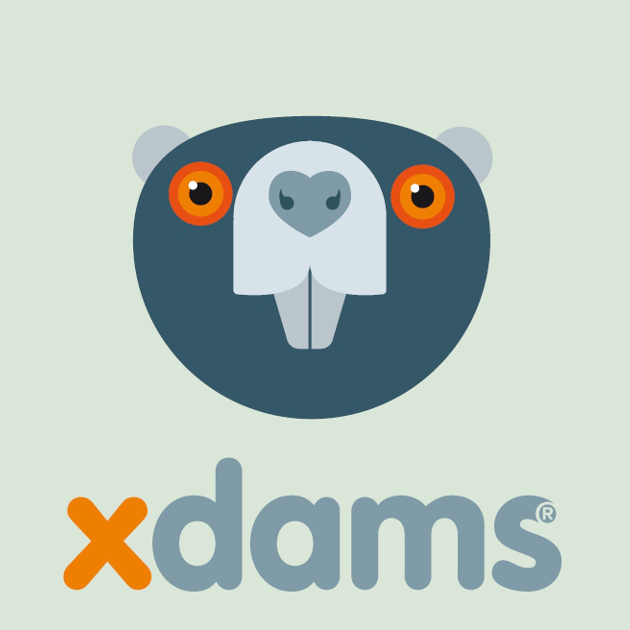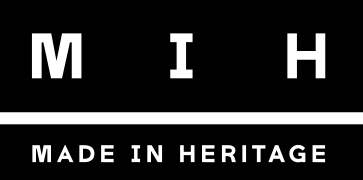
XDAMS Platform
XDAMS is a comprehensive and efficient digital content management platform that offers solutions for archiving, organizing, and distributing multimedia data. Equipped with an intuitive interface, it allows for quick cataloging, searching, and accessing of content. XDAMS supports a wide range of formats, facilitating integration with existing systems. The platform also offers advanced features such as version control, rights management, and automated workflows. With XDAMS, organizations can optimize the management of their digital assets, improving operational efficiency and enabling faster and more accurate content distribution.
Within the Made Heritage project, the use of XDAMS stems from a collaboration with regesta.exe, which began developing this platform in 2002 to address the changing technological demands of society and guide investments and choices in web communication of multimedia archives and content. A significant step in the platform's development occurred in 2012 when regesta.exe made a definitive and irrevocable choice to develop Open Source versions of all source code and software. Throughout its Open Source evolution, XDAMS (www.xdams.org) has developed as an archival, documentary, and multimedia hub capable of providing guarantees in terms of adherence to industry standards and serving as the "base" platform for potential future activities of ingesting databases and photographic and archival collections not currently foreseen.
The XDAMS archival platform can manage various accounts and users within the same environment, with specific access permissions and interactions on different specialized data sets, integrable through common indices (authority) that define themes, people, entities, and places. It allows for both free and structured multi-archive searches on individual descriptive elements of various records, as well as hierarchical navigation of each archive.
In summary, XDAMS is a management system for historical archives that is:
- Multi-user, offering differentiated access to users with privileges for accessing, using services, and different functionalities;
- Multi-archive, managing integrated documentary resources and multimedia digital attachments;
- Multimedia, providing document descriptions and allowing the association or independent ordering of other document types such as photographs, audiovisuals, and music files.
Initially designed as an open environment based on XML file database technology, XDAMS offered a flexible solution for multimedia data archiving and consultation. Over the years, the platform has evolved to meet clients' needs, embracing the advantages of relational databases and opening new possibilities. In its latest version, XDAMS leverages MongoDB's open-source Big Data engine (https://www.mongodb.com/it) for data persistence, ensuring scalability and high performance.
MongoDB is a scalable and high-performance solution that efficiently manages large volumes of data, allowing XDAMS to adapt to increasingly complex archiving scenarios. Additionally, for indexing and search management, XDAMS relies on Apache Solr (http://lucene.apache.org/solr/), the most widely used open-source platform in its field. Based on Apache Lucene, Solr offers advanced functionalities for indexing, retrieving, and searching data, ensuring optimal performance and greater precision.
By utilizing MongoDB and Apache Solr, XDAMS benefits from cutting-edge technologies in data archiving and search, while maintaining its open-source nature. This combination of powerful and flexible technologies enables XDAMS users to maximize their resources and achieve high performance and efficient data management.
Moreover, XDAMS is configured as an extremely flexible development environment that allows for the creation of highly customizable applications for archiving and consulting multimedia databases. The strength of the XDAMS OSS system lies in its ability to adapt to clients' specific needs, offering a series of archive/database subsystems available on the platform, including historical archives, photographic archives, publications, and authority files.
The web application, developed entirely in Java2EE environment and following the MVC model, utilizes the open-source "Spring" framework. This ensures a modular and scalable architecture for applications created with XDAMS. Additionally, the application environment can be easily hosted on various cross-platform Java Servlet containers, such as Apache Tomcat or JBoss.
Thanks to these features, XDAMS allows its users to fully customize the solutions for archiving and consulting multimedia data, ensuring an unprecedented level of adaptability and flexibility.
In 2022, XDAMS open source celebrated its 10th anniversary. However, the main focus of the new XDAMS version is on technical features and developments related to Linked Open Data (LOD), representing a significant step in how the platform manages and uses data from the web.
The new XDAMS version fully leverages experiences in Linked Open Data, reflecting in both data publication and the ability to acquire and integrate information from the public domain, conforming to LOD standards. This approach enriches archive descriptions with data from various sources, offering a more complete and in-depth view.
By utilizing Linked Open Data, XDAMS positions itself at the forefront of web technologies to enrich and complete archived data descriptions. This represents a significant advancement in data archiving and management, allowing users to achieve more accurate results and a more comprehensive view of their archives. The development of a plugin for publishing XDAMS archives on WordPress installations completes the value chain, making archive publication accessible at finally affordable costs.
In conclusion, XDAMS possesses the essential characteristics for the complete publication of corporate historical archives, central to initiatives for the enhancement of cultural and documentary heritage within the Made In Heritage project.

